
Dame Daphne du Maurier, Lady Browning, was an English novelist, biographer and playwright. Her parents were actor-manager Sir Gerald du Maurier and his wife, actress Muriel Beaumont. Her grandfather was George du Maurier, a writer and cartoonist.

Mary Aline Siepmann CBE, known by the pen name Mary Wesley, was an English novelist. During her career, she was one of Britain's most successful novelists, selling three million copies of her books, including ten bestsellers in the last twenty years of her life.
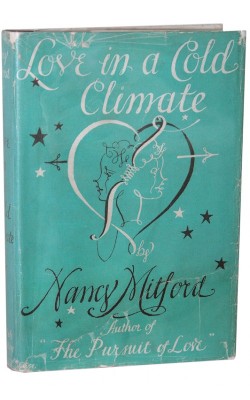
Love in a Cold Climate is a novel by Nancy Mitford, first published in 1949. The title is a phrase from George Orwell's novel Keep the Aspidistra Flying (1936).
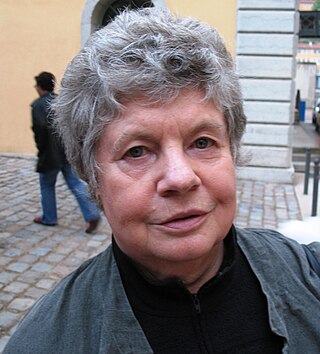
Dame Antonia Susan Duffy, known professionally by her former married name, A. S. Byatt, was an English critic, novelist, poet and short story writer. Her books have been translated into more than thirty languages.

Constance Clara Garnett was an English translator of nineteenth-century Russian literature. She was the first English translator to render numerous volumes of Anton Chekhov's work into English and the first to translate almost all of Fyodor Dostoevsky's fiction into English. She also rendered works by Ivan Turgenev, Leo Tolstoy, Nikolai Gogol, Ivan Goncharov, Alexander Ostrovsky, and Alexander Herzen into English. Altogether, she translated 71 volumes of Russian literature, many of which are still in print today.

Chatto & Windus is an imprint of Penguin Random House that was formerly an independent book publishing company founded in London in 1855 by John Camden Hotten. Following Hotten's death, the firm would reorganize under the names of his business partner Andrew Chatto and poet William Edward Windus. The company was purchased by Random House in 1987 and is now a sub-imprint of Vintage Books within the Penguin UK division.
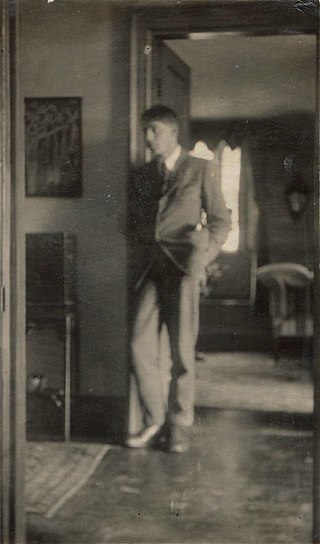
David Garnett was an English writer and publisher. As a child, he had a cloak made of rabbit skin and thus received the nickname "Bunny", by which he was known to friends and intimates all his life.

Aunt Phillis's Cabin; or, Southern Life as It Is by Mary Henderson Eastman is a plantation fiction novel, and is perhaps the most read anti-Tom novel in American literature. It was published by Lippincott, Grambo & Co. of Philadelphia in 1852 as a response to Harriet Beecher Stowe's Uncle Tom's Cabin, published earlier that year. The novel sold 20,000–30,000 copies, far fewer than Stowe's novel, but still a strong commercial success and bestseller. Based on her growing up in Warrenton, Virginia, of an elite planter family, Eastman portrays plantation owners and slaves as mutually respectful, kind, and happy beings.

Sunset at Blandings is an unfinished novel by P. G. Wodehouse published in the United Kingdom by Chatto & Windus, London, on 17 November 1977 and in the United States by Simon & Schuster, New York, 19 September 1978. Wodehouse was working on the novel when he died in 1975. The book's first edition publisher, Chatto & Windus, gave the book its title.

Bodinnick is a riverside village in south-east Cornwall, in the United Kingdom. According to the Post Office the population of the 2011 Census was included in the civil parish of Lanteglos-by-Fowey. It is a fishing village situated on the east bank of the River Fowey opposite the town of Fowey, also on the banks of the Fowey River. The ferry crossing is from Fowey to Bodinnick and the "Old Ferry Inn" is located on its bank glorified as "in the heart of Du Maurier country". This ferry terminal is said to have existed since the 13th century.
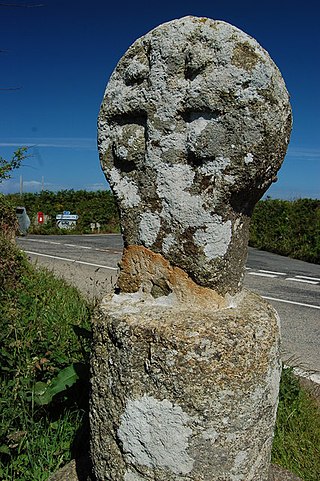
Boskenna is an early medieval settlement and large 17th-century manor house in the civil parish of St Buryan, west Cornwall, England, United Kingdom. Nearby, to the south, is the valley and cove of St Loy and the site of St Loy's chapel which was on the Boskenna side of a stream.

Lewis Clive was a British rower who won a gold medal in the 1932 Summer Olympics. He volunteered to fight for the Republicans in the Spanish Civil War and was killed in action.
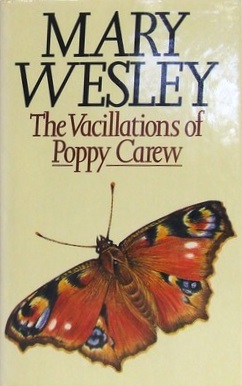
The Vacillations of Poppy Carew (1986) is a novel by Mary Wesley. The title refers to the protagonist's inability to choose in life. However, when Poppy Carew's boyfriend leaves her, and her father dies, she is forced to make a decision and to learn how to deal with life on her own.

Not That Sort of Girl (1987) is a novel by British author Mary Wesley. The novel is set in Southern England and takes its beginning in the late 1930s and follows the life of Rose Peel throughout 48 years of marriage.
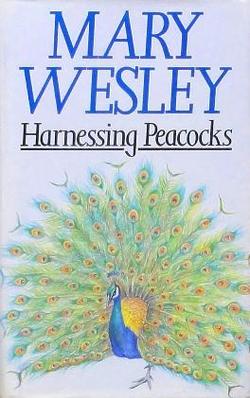
Harnessing Peacocks is the third novel by Mary Wesley, published in 1985 when the author was 73 years old. In 1992 it was adapted for television.

A Dubious Legacy (1992) is a novel written by the British author Mary Wesley. The story takes place in the West Country, England, from 1944 to 1990. It concerns the tragic and bizarre marriage of the Tillotsons and their relationship with two young couples who keep visiting them throughout the years.

Second Fiddle (1988) is a best-selling novel by British author Mary Wesley.
Patrick Marnham is an English writer, journalist and biographer. He was elected as a Fellow of the Royal Society Literature in 1988. He is primarily known for his travel writing and for his biographies, where he has covered subjects as diverse as Diego Rivera, Georges Simenon, Jean Moulin and Mary Wesley. His most recent book, published in September 2020 is War in the Shadows: Resistance, Deception and Betrayal in Occupied France, an investigation into the betrayal of a British resistance network in the summer of 1943.
Heinz Otto Ziegler (1903–1944) was a Czech political scientist, who became an RAF pilot. He was killed in action in May 1944.

The Camomile Lawn is a television adaptation of the 1984 book of the same name by Mary Wesley, produced by Glenn Wilhide and Sophie Belhetchet at ZED Ltd for Channel 4, directed by Peter Hall. It was adapted from Wesley's novel by Ken Taylor and first broadcast in 1992. It was nominated for the BAFTA TV Award for Best Drama Serial in 1993.


















